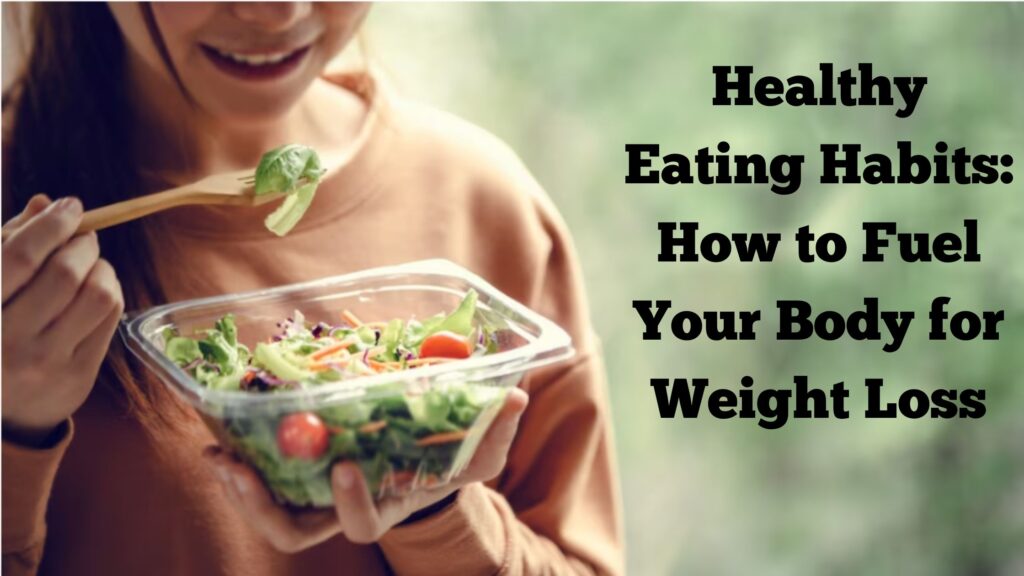Healthy eating habits are essential for maintaining good health and achieving a healthy weight. Weight loss is a common goal for many people, but it’s important to do it in a healthy way that doesn’t compromise your overall health. In this blog, we’ll discuss how to fuel your body for weight loss with healthy eating habits.
Chapter 1: Understanding Weight Loss
Before we dive into healthy eating habits, it’s important to understand what weight loss is and how it works. Weight loss occurs when you consume fewer calories than you burn. This creates a calorie deficit, which forces your body to burn stored fat for energy. However, weight loss isn’t just about calorie counting. Other factors, such as your metabolism, hormonal balance, and genetics, also play a role in weight loss.
Chapter 2: The Importance of a Balanced Diet
A balanced diet is crucial for weight loss and overall health. A balanced diet includes a variety of nutrient-dense foods, such as fruits, vegetables, whole grains, lean proteins, and healthy fats. These foods provide your body with the essential nutrients it needs to function properly and support weight loss.
Chapter 3: Choosing the Right Macronutrients
Macronutrients, or macros, are the nutrients your body needs in large amounts, such as carbohydrates, protein, and fat. Choosing the right macros is important for weight loss. Carbohydrates provide your body with energy, but not all carbs are created equal. Complex carbs, such as whole grains and vegetables, provide your body with sustained energy and are a better choice than simple carbs, such as sugary foods and refined grains. Protein is essential for building and repairing muscle, which can help increase your metabolism and support weight loss. Healthy fats, such as those found in nuts, seeds, and avocados, can help keep you feeling full and satisfied.
Chapter 4: Portion Control
Portion control is an important part of healthy eating habits for weight loss. Even healthy foods can contribute to weight gain if you eat too much of them. Using portion control methods, such as measuring your food and using smaller plates, can help you manage your calorie intake and support weight loss.
Chapter 5: Eating Mindfully
Mindful eating is a practice that involves paying attention to your food and your body’s hunger and fullness signals. Eating mindfully can help you develop a healthier relationship with food and support weight loss. Mindful eating involves slowing down, savoring your food, and tuning in to your body’s hunger and fullness signals.
Chapter 6: Meal Planning and Prep
Meal planning and prep can help you stay on track with healthy eating habits and support weight loss. Planning your meals and snacks ahead of time can help you make healthier choices and avoid unhealthy options when you’re hungry and on the go. Meal prep involves preparing meals and snacks in advance, so you have healthy options readily available throughout the week.
Chapter 7: Hydration
Staying hydrated is important for weight loss and overall health. Drinking plenty of water can help keep you feeling full and satisfied, which can help you eat less and support weight loss. It can also help keep your body functioning properly and support healthy digestion.
Chapter 8: Exercise
Exercise is an important part of a healthy lifestyle and can support weight loss. Regular exercise can help increase your metabolism, build muscle, and burn calories. It can also help improve your mood, reduce stress, and support overall health and well-being.

